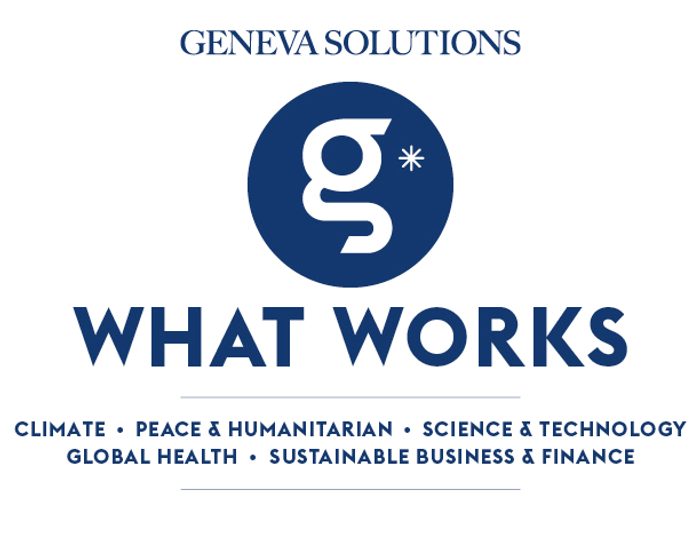Good morning, this is Paula. I'm just back from Baku, and what many veteran Cop participants felt was the most restrictive United Nations climate conference on record in terms of freedom of expression. And that's after Egypt and Dubai.
International civil society organisations questioned how meaningful engagement in talks was possible under the authoritarian petrostate hosting, while heavy-handed repression of Azeri independent media further silenced Baku critics. We spoke with people attending the climate meeting, those left out and a formerly imprisoned media boss. |

|

State-sanctioned media at a kiosk in Central Baku, 24 November 2024. (Paula Dupraz-Dobias)
|
|
For the third year in a row, the Cop29 climate conference was held in an authoritarian petrostate, undermining how effective climate outcomes could be within that context. But even for regulars to the yearly Cop events, it was clear that government repression of its domestic critics had not only tightened during the two weeks, but also permeated the venue’s Olympic Stadium.
Many participants condemned the incongruity of hosting the talks in a fossil fuel nation, which they blame for “chaotic”, “disappointing, and even “the worst ever” talks, where the presidency cut out representatives of vulnerable populations and developing countries, while prompting many participants to self-censor under the peering eyes and ears of the authoritarian host.
Myrto Tilianaki, environment and human rights advocate at Human Rights Watch said that operating within a repressive government meant that “instead of doing a job of keeping governments accountable” and pressuring leaders to achieve more ambitious climate outcomes, “civil society has been spending an incredible amount of time and energy trying to understand what we can or cannot say and what repercussions we may face.”
The families of over 300 Azeris now in detention on politically motivated charges would disagree with Baku’s proclaimed interest expressed ahead of the Cop29 in engaging with civil society. Journalists have been among the most intensely repressed. Since late 2023, when the Cop29 hosting was announced, at least a dozen reporters have been arrested on trumped up charges.
In Baku, Geneva Solutions spoke to a few of those affected by the crackdowns on freedom of expression.
Read the full story on Geneva Solutions
|
|

Mehman Aliyev, director of Turan News Agency, 9 January 2017. (Human Rights House Foundation)
|
|
Here's what else is happening
-
⚕️WHO warns of 'critical shortages' in northern Gaza.
The World Health Organization warned on Thursday that medicines, food, shelter and fuel were sorely lacking in Gaza, especially in the north. The health body demanded that Israel allow in more aid and facilitate humanitarian operations.
AFP via Barron’s (EN)
-
🛜As Musk vows deregulation, Geneva seeks to promote internet governance.
Diplomats speaking at the Geneva Geostrategic Observatory Conference on Thursday called for the public conquest of digital space in the face of the deregulation advocated by billionaire entrepreneur Elon Musk.
Tribune de Genève (FR)
-
💰China and Russia lead wage recovery while rich economies lag behind, UN says.
Real wages are growing again as the rise in inflation abates, but remain below their prepandemic levels in many parts of the rich world even as they surge in China and Russia, according to the International Labour Organization.
Wall Street Journal (paywall) (EN)
-
📱HIV activist to use Charlize Theron's Instagram on World Aids Day.
Ibanomonde Ngema, a 21 year-old activist born with HIV, will be given the reins to the South Africa-born actress’s global account with 7.6 million followers, with the aim to bring awareness to the experiences of young people living with the virus.
VOA News (EN)
|

Plate 15: Y no hay remedio (And it cannot be helped). Prisoners executed by firing squads, reminiscent of The Third of May 1808. (Francisco Goya/Museo del Prado/Wikipedia)
|
|
Goya and Dunant.
A selection of prints by Spanish artist Francisco Goya depicting the horrors of war were on show last night at a one-off event organised by Geneva’s Museum of Art and History Geneva and the International Committee of the Red Cross to commemorate the 75th anniversary of the Geneva Conventions.
In 1810, during the war of independence that devastated his country, Goya set to work depicting the tragic and inhumane consequences of warfare. Instead of heroic battle scenes, Goya broke with artistic tradition and portrayed war in all its brutality, suffering and misery. His works, an appeal for compassion and acts of humanity in armed violence, went on to have a profound influence on the way war was depicted and perceived, both in art and literature, and in society.
Fifty years later, Red Cross founder Henry Dunant would take up a similar plight when he wrote his eyewitness account of the suffering of thousands of wounded soldiers left untended after the Battle of Solferino. He went on to found the first humanitarian movement and in 1864, five years after Solferino, the first Geneva Convention aimed at protecting wounded soldiers, was signed.
“Today, the four Geneva Conventions of 1949 are the pillars of international humanitarian law. Given the armed violence that still affects the world today, it seemed appropriate for the Museum to recall the human force linked to artistic expression and to commemorate ...the 75th anniversary of the Geneva Conventions," said Marie-Eve Celio, head of prints and drawings at the MAH and curator of the ephemeral exhibition. The prints will be returning to the archives of the Musée d’Art et Histoire.
- By Kasmira Jefford
|
|
|
GS news is a new media project covering the world of international cooperation and development. Don’t hesitate to forward our newsletter!
Have a good day!
|

|
|
Avenue du Bouchet 2
1209 Genève
Suisse
|
|
|
|










